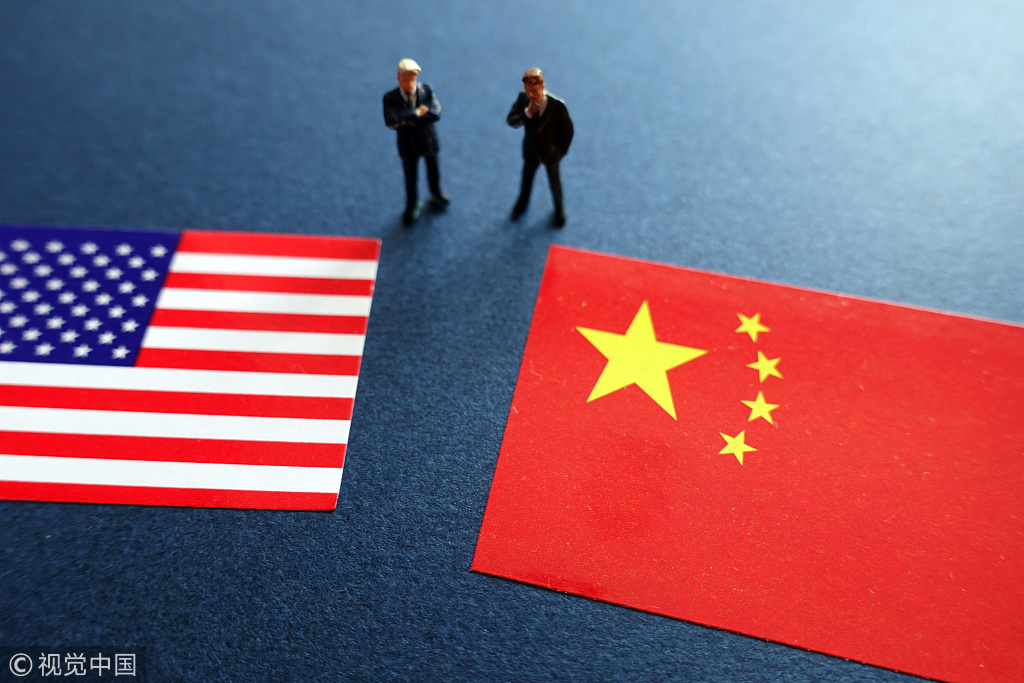
Photo: VCG
It would be a mistake and a bad political move for Washington to withdraw from the phase one trade deal with Beijing, two US legislators said Thursday amid speculation that a demise of the historic agreement might be an "October surprise".
The speculation was first reported by Politico, which carried the headline "Death of trade deal with China could be 'October surprise'" on its website Thursday.
"October surprise", in campaign parlance, means a news event that breaks late in an election cycle that could tip the balance of the election, explained Daniel W. Drezner, a professor of international politics at the Fletcher School of Law and Diplomacy at Tufts University.
Although China-bashing rhetoric and actions have been employed by both Democratic and Republican presidential candidates as tactics to court support in the Nov 3 election, US Congressman Rick Larsen said he did not believe withdrawing from the trade deal China and the US signed on Jan 15 was an option.
"I just don't see how that plays out positively for the president. There are other things that could happen that would show a 'tough-on-China' approach that have nothing to do with the phase one deal," said Larsen, a co-chair of the House US-China Working Group.
The bipartisan US-China Working Group educates members of Congress about US-China issues through meetings and briefings with academic, business and political leaders from the United States and China.
Speaking at a webinar sponsored by the US-China Business Council, Larsen, a Democrat representing the 2nd District of Washington state, said it is possible that the president would do that, but possible is not probable.
"I wouldn't understand the politics of pulling out of the phase one deal from this administration's perspective," he said. "I'm just saying ... it wouldn't seem like a good move politically to do that."
US Representative Darin LaHood, a Republican and another co-chair of the US-China Working Group, said the phase one deal, particularly on agriculture, is "obviously" an important political constituency to President Donald Trump.
"If we pulled the plug on that and China didn't have to comply with those contractual obligations, it would be devastating to our farmers," said LaHood, a congressman representing the 18th District of Illinois, which has led the country in soybean production the past five years.
China has actually ramped up purchases of US products in recent weeks, as top trade officials of the two countries had a positive phone call late last month in which they reaffirmed their commitment to the trade deal.
For example, Chinese buyers booked deals to buy 664,000 tonnes of soybeans, the largest daily total since July 22, for delivery in the 2020-21 marketing year, the US Agriculture Department said on Tuesday.
On Thursday, the USDA said private exporters reported export sales of 195,000 metric tons of soybeans for delivery to China.
LaHood said Illinois has a bountiful harvest, and 25 percent of the soybeans grown in his district go to China every year, constituting a big part of the purchase agreement.
"So if for some reason they pulled the plug on that, you know, there's going to be political consequences to that," he said.
LaHood said there will be "some struggles there" with some of the purchase agreements but on others, particularly agriculture and some in manufacturing, "I'm optimistic that they're going to meet that, and I think they want to do that.
"This president, who knows? He could decide to tear it up a month from now, I hope that doesn't happen," LaHood said of the Republican president. "I think he has the discretion, the ability to do that, but I think that would be a mistake.
"I think there is much more to gain by staying on track with phase one and phase two than to rip it up," he added.
The webinar was moderated by Craig Allen, president of the US-China Business Council, which represents about 200 American companies that do business with China.
"I think that most of our members would say that the phase one agreement has led to policy changes and structural changes in China, in many of the areas that we're particularly interested in: intellectual property rights, financial services and ag in particular," Allen said. "I think that we're not overjoyed but very satisfied.
"Will there be an 'October surprise' in foreign policy?" Drezner, the Tufts University professor, wrote in an analysis in The Washington Post on Wednesday. "Probably not, but if there is one, it's bad news for President Trump.
"The Trump administration's challenges in pulling off a potent October surprise are daunting, however. One problem is that Trump's opportunities for such a surprise are meager," Drezner wrote.


